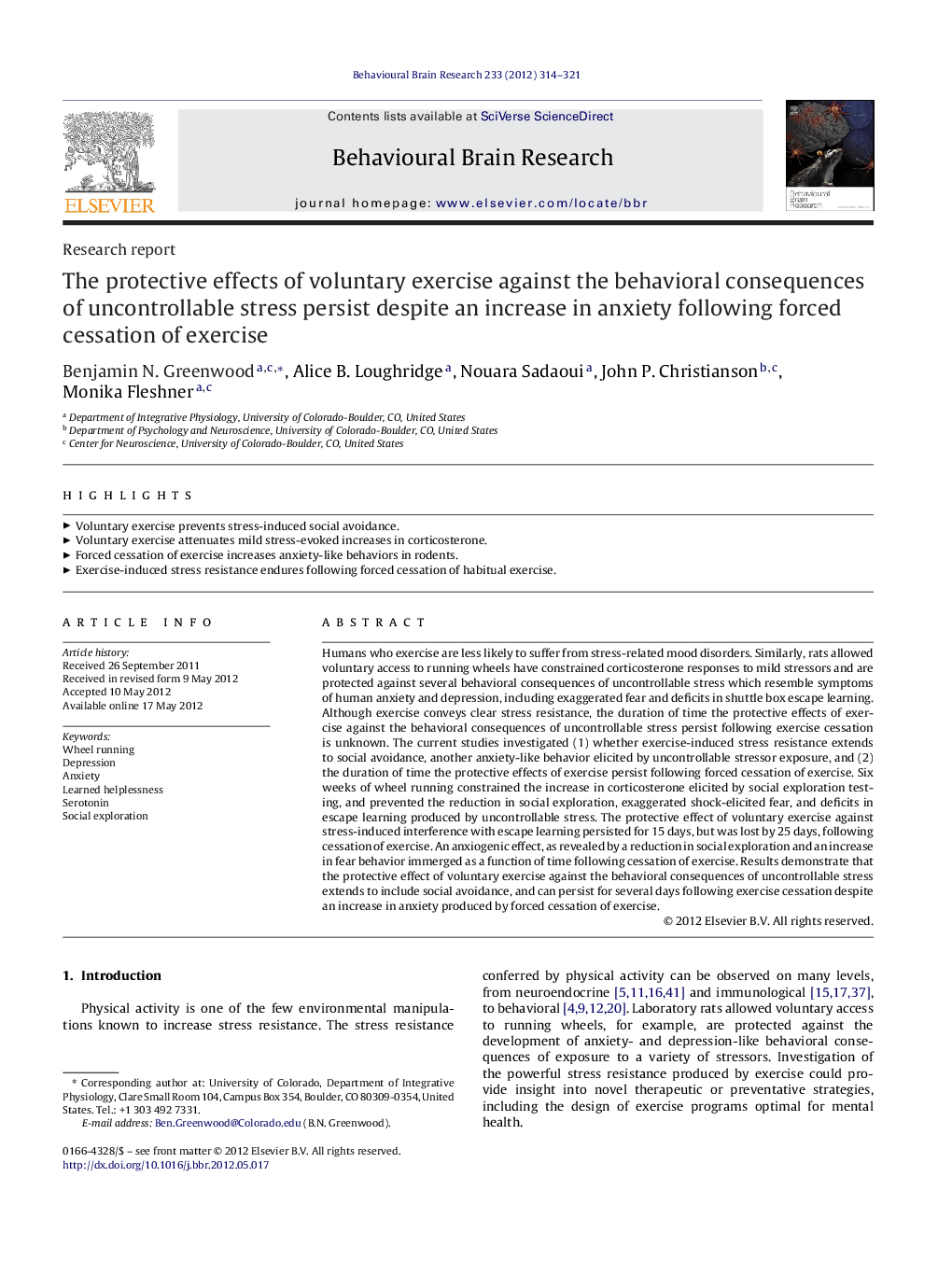| Article ID | Journal | Published Year | Pages | File Type |
|---|---|---|---|---|
| 4313136 | Behavioural Brain Research | 2012 | 8 Pages |
Humans who exercise are less likely to suffer from stress-related mood disorders. Similarly, rats allowed voluntary access to running wheels have constrained corticosterone responses to mild stressors and are protected against several behavioral consequences of uncontrollable stress which resemble symptoms of human anxiety and depression, including exaggerated fear and deficits in shuttle box escape learning. Although exercise conveys clear stress resistance, the duration of time the protective effects of exercise against the behavioral consequences of uncontrollable stress persist following exercise cessation is unknown. The current studies investigated (1) whether exercise-induced stress resistance extends to social avoidance, another anxiety-like behavior elicited by uncontrollable stressor exposure, and (2) the duration of time the protective effects of exercise persist following forced cessation of exercise. Six weeks of wheel running constrained the increase in corticosterone elicited by social exploration testing, and prevented the reduction in social exploration, exaggerated shock-elicited fear, and deficits in escape learning produced by uncontrollable stress. The protective effect of voluntary exercise against stress-induced interference with escape learning persisted for 15 days, but was lost by 25 days, following cessation of exercise. An anxiogenic effect, as revealed by a reduction in social exploration and an increase in fear behavior immerged as a function of time following cessation of exercise. Results demonstrate that the protective effect of voluntary exercise against the behavioral consequences of uncontrollable stress extends to include social avoidance, and can persist for several days following exercise cessation despite an increase in anxiety produced by forced cessation of exercise.
► Voluntary exercise prevents stress-induced social avoidance. ► Voluntary exercise attenuates mild stress-evoked increases in corticosterone. ► Forced cessation of exercise increases anxiety-like behaviors in rodents. ► Exercise-induced stress resistance endures following forced cessation of habitual exercise.
